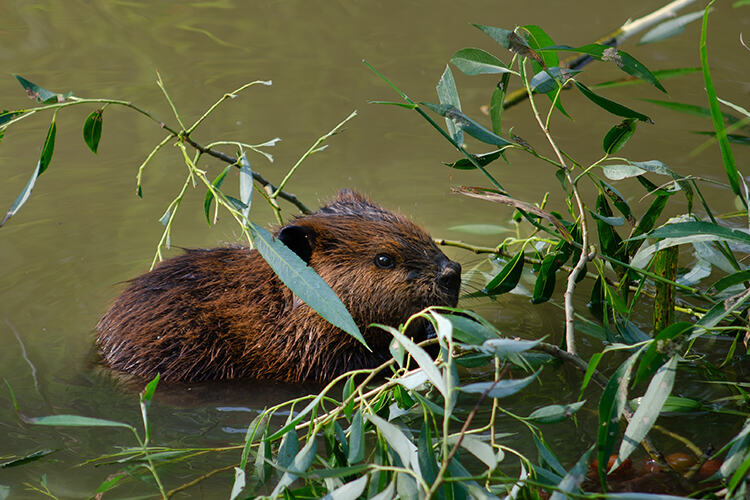
The beaver was reintroduced to London last year and now, just eighteen months later, the first baby beaver has been born
By
It’s been around four hundred years since the patter of little feet was last heard in London. Little webbed feet, that is. The beaver, Europe’s largest and most enigmatic rodent, was reintroduced to the waterways of London last year, and now, just eighteen months later, two beavers have become three.
Beavers don’t just look cute, but they’re also a keystone species that are often described as an ecosystem engineer, meaning its capable of transforming landscapes through its habit of damning rivers which, in turn, helps improve the health and biodiversity of its watery habitat and even reduced flood risk.
But, unfortunately for the beaver, back in the 16th Century, such engineering and habitat management skills were not valued. But what was valued was beaver fur, beaver meat and castoreum, a glandular secretion used to make perfume.
This desire for beaver products led to the extinction of beavers throughout the UK and many other parts of Europe. In fact, by the start of the 20th Century, only around 1,200 wild beavers were thought to be left in Europe.
Since then, though numerous beaver reintroductions have been carried out across Europe. The UK’s first reintroductions took place relatively late (2009 in Scotland), but, as reported in the July 2022 issue of Geographical magazine, they have so far been more successful than anyone dared hope.
In 2022 a breeding pair of beavers was released into waterways around Enfield in North London as part of a pioneering flood alleviation and biodiversity project supported by Enfield council, the mayor of London and the Capel Manor College (an environmental college). They quickly settled into their new home and began stripping bark from nearby trees and damn building. But the recent sightings of a baby beaver is the real proof of just how quickly the beavers have settled into their urban home.
News of the birth has been greeted with joy by those involved in the project with Enfield Council’s Cabinet Member for Environment, Cllr Rick Jewell, saying: ‘This truly is wonderful news. The adult couple are quite young so we weren’t sure that they would breed successfully in such a short space of time. You can already see the positive impact the beavers are having through their natural landscaping of the area. The beavers’ hard work creating a natural wetland ecosystem will contribute to excellent flood defences, protecting the local area and hundreds of homes from flooding downstream to the southeast of the borough, while encouraging local biodiversity to thrive. They really are remarkable animals’.
It’s hoped that the apparent success of this re-wilding programme will lead to further beavers being released in other parts of London in the near future.




